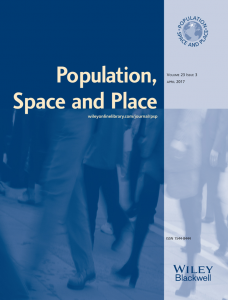The School-to-Prison Pipeline and the Minority Educational Gap
In a recent Sociology Lens post, Markus Gerke detailed the problem associated with President Obama’s rhetoric of individual responsibility for increasing opportunities for Latino and Black men. One component to President Obama’s initiative is to increase educational opportunities for these populations and Gerke correctly notes that the focus on individual responsibility ignores the structural barriers that limit these populations. Research suggests that a major factor in the educational achievement gap is the presence of the school-to-prison pipeline and the punishment...



1475-6781/asset/JSS.gif?v=1&s=377bb8e0c3d0fcf201f301ded7cf610142072c3e)
